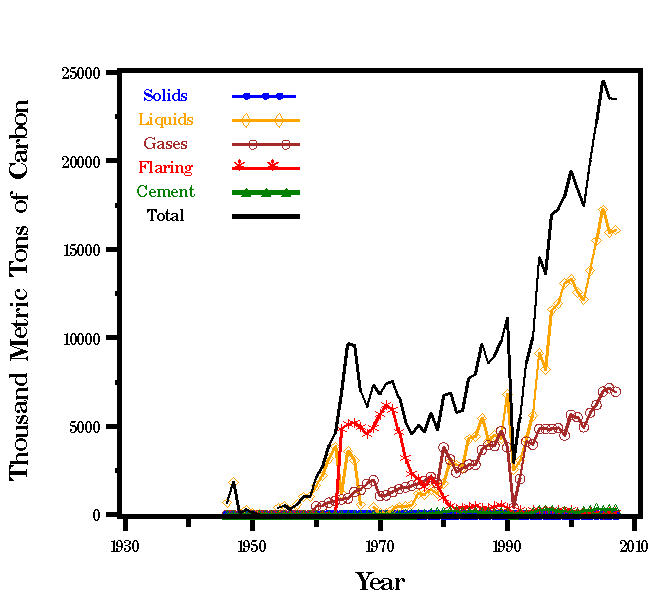Introduction
A greater focus on renewable energy development is necessary in this day and age due to the various problems brought about by the use of fossil fueled power plants, which have caused not only an increase in the amount of pollution in the air, but have also brought adverse climate change as well as an increase in the amount of people with respiratory illnesses (Mandal, Habib, Zhang, Mukherjee & Tornatore 2013).
Based on this, the paper will delve into the effects of fossil fuels, the necessity of renewable energy resources in mitigating such a problem and the current attitudes and support towards “green energy” production.
Weather
The problem with using fossil fuel burning power plants as the primary method of energy production within a country is the impact it has on the weather.
It must be noted that an increase in the amount of carbon dioxide in the atmosphere actually causes heat to be trapped within the Earth’s atmosphere, which has lead to stronger storms and droughts around the world.
This has the potential to cause various problems, which can be seen in the case of South East Asia and the U.S. which have experienced an increase in the amount and strength of storms in their areas (Shi, Du, Yang, Tang, Fan, Zhang, Lu, Ge & Chang 2013).

Figure. 1 Carbon Emissions Data
Waste Management
In figure 2, an examination of the current amount of carbon emissions into the atmosphere by 2010 reveals that 25,000 metric tons of carbon emission gas were released by various sources into the atmosphere by the city of Beijing alone.
This number is a combination of both emissions from motor vehicles as well as those coming from fossil fuel burning power plants (Qi, Zhang & Karplus 2014).
Climate Change
Studies such as those by Simsek & Simsek have stated that not only have these emissions contributed significantly to the rise in respiratory diseases, but they also brought the current trend in global climate change as evidenced by the increase in temperatures around the world (Simsek & Simsek 2013).
This has lead to an adverse situations in many countries resulting in either droughts, floods or other forms of adverse climate change.
Necessity of Renewable Energy Resources
Renewable energy technologies are methods of energy production that utilize naturally replenishable resources such as solar, wind, geothermal heat and tides energy.
Unlike fossil fuel based methods of energy production, renewable energy technologies are nonpolluting and are a source of potentially limitless energy since they are not dependent on a finite source of power (Wright,Dey & Brammer 2013).
As such, by focusing on renewable energy development, this should help to resolve the various issues related to climate change and the increase in the number of individuals with respiratory diseases.
Current Attitudes and Support towards Renewable Energy
The Green Movement can be summed up as a political ideology, which main goal is the creation of an ecologically sustainable society where conservation and sustainability are everyday practices rather than isolated rarities in an increasingly consumerist global population (Liu, Lieu & Zhang 2014).
The main concept that drives the Green Movement is the idea that the finite resources available on Earth cannot support the potentially infinite expansion of humanity. It is a belief that states that the Earth itself is a closed off ecosystem with no resources entering into it.
As such, its surface can only support a certain population of species before the ecosystem inevitably collapses in on itself as a result of a severe strain on the planet’s natural and ecological resources (Culley, Carton, Weaver, Ogley-Oliver & Street 2011).
Conclusion
Overall, what this paper has shown is that a greater focus on renewable energy development must be implemented due to the adverse effects that the present method of energy production has on people and the environment.
Reference List
Culley, M, Carton, A, Weaver, S, Ogley-Oliver, E, & Street, J 2011, ‘Sun, Wind, Rock and Metal: Attitudes toward Renewable and Non-renewable Energy Sources in the Context of Climate Change and Current Energy Debates’, Current Psychology, vol. 30, no. 3, pp. 215-233
Liu, Z, Lieu, J, & Zhang, X 2014, ‘The target decomposition model for renewable energy based on technological progress and environmental value’, Energy Policy, vol. 68, pp. 70-79
Mandal, U, Habib, M, Zhang, S, Mukherjee, B, & Tornatore, M 2013, ‘Greening the cloud using renewable-energy-aware service migration’, IEEE Network, vol. 27, no. 6, pp. 36-43
Qi, T, Zhang, X, & Karplus, V 2014, ‘The energy and CO2 emissions impact of renewable energy development in China’, Energy Policy, vol. 68, pp. 60-69
Shi, Y, Du, Y, Yang, G, Tang, Y, Fan, L, Zhang, J, Lu, Y, Ge, Y, & Chang, J 2013, ‘The use of green waste from tourist attractions for renewable energy production: The potential and policy implications’, Energy Policy, vol. 62, pp. 410-418
Simsek, H, & Simsek, N 2013, ‘Recent incentives for renewable energy in Turkey’, Energy Policy, vol. 63, pp. 521-530
Wright, D, Dey, P, & Brammer, J 2013, ‘A fuzzy levelised energy cost method for renewable energy technology assessment’, Energy Policy, vol. 62, pp. 315-323